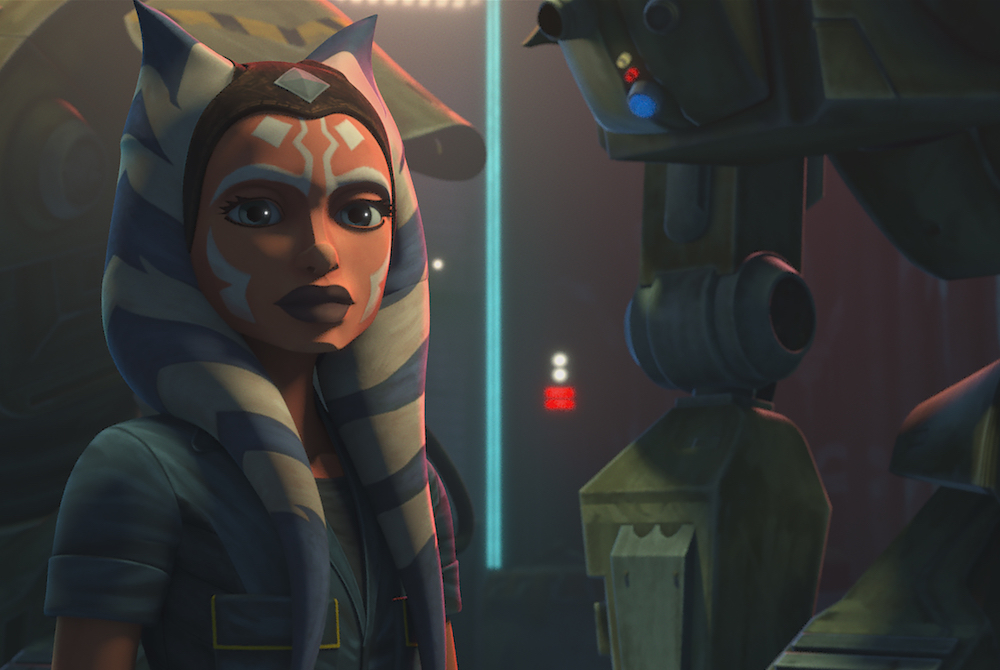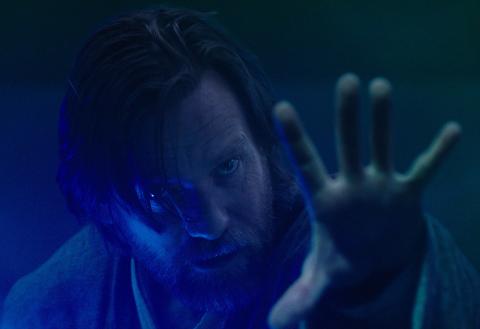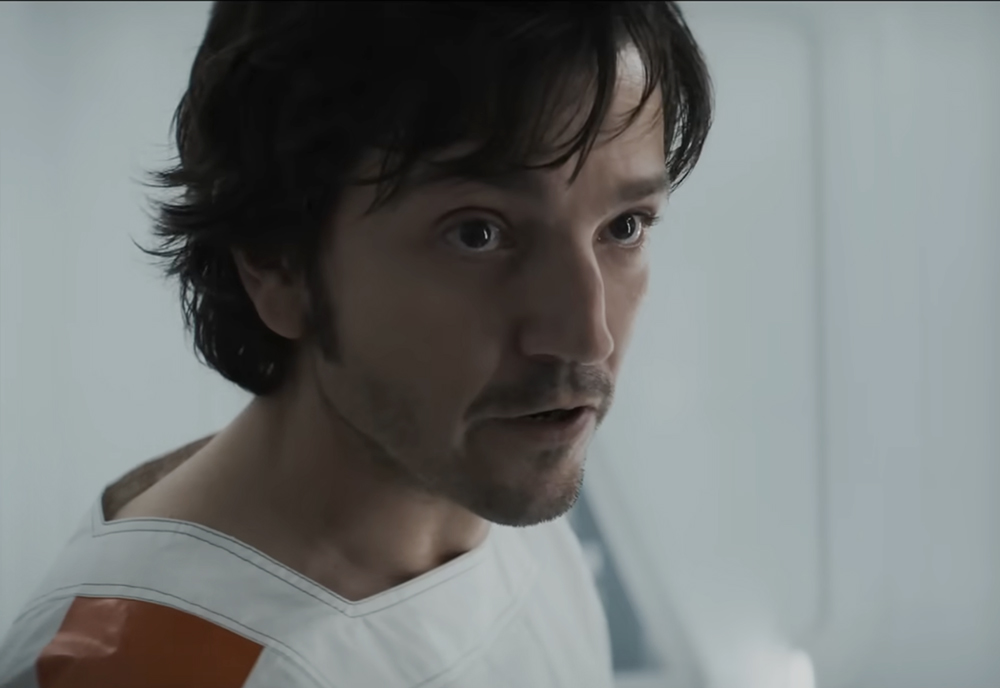
Ahsoka Tano (Ashley Eckstein) is stranded in the underworld of Coruscant in "Star Wars: The Clone Wars," Episode 705, "Gone With a Trace." (Disney+)
May 4 is traditionally celebrated as "Star Wars Day" among aficionados of the beloved franchise. ("May the Fourth" references the line "May the Force be with you.") To join in the fun — and since Star Wars has deeper spiritual implications than it is given credit for — we've compiled a list of NCR's best reviews of everyone's favorite space fantasy.
1. In an age of institutional failure, 'Star Wars' is saving my faith
While watching "Star Wars: The Clone Wars," Jennifer Vosters found herself shocked to see in the depiction of fan-favorite character, Ahsoka Tano, an all-too-familiar deconstruction unfolding onscreen: A young woman realizing that the institution she loved did not love her back.
The Jedi leaders whom Ahsoka had trusted failed to preserve the core principles of their creed and instead allied with the powerful. Ultimately, the young Jedi found herself forced to choose between her own beliefs and the very community that taught her.
Vosters was witnessing a spiritual journey that felt a lot like her own.
We never see Ahsoka reconcile with the Jedi in "The Clone Wars" — in fact, the Jedi Order collapses. But the wise, wounded woman on the margins survives to live out the truest tenets of the Jedi: selflessness, courage, compassion, balance and peace. "The institution may have failed her," writes Vosters, "but the Source has not, and she knows it."
2. What can 'The Book of Boba Fett' teach Catholics about mystery and intimacy?
Mystery is either an invitation to know more or a tactic to avoid intimacy, writes Eric Clayton, who points out that this is as true for the iconic character Boba Fett as it is for real life. Mystery fascinates us, but it isn't a static character trait. It shouldn't be, at least.
Faith demands that we enter into the mystery; we don't watch helpless on the sidelines. And in that mystery, we come to know more of who God is — and more of who we ourselves are as a result.
"We enter into the mystery of suffering and loss and hope and meaning with one another," Clayton writes, "knowing that we will never get all the answers, and yet trusting that the journey of sharing and carrying one another's stories is worth the effort."
Advertisement
3. The redemption of 'Obi-Wan Kenobi'
The titular character we meet at the beginning of "Obi-Wan Kenobi" is a haunted man, struggling to trust others, to act decisively, to even exist in a much-changed galaxy. But after his old apprentice, Vader, destroys the weakened, distracted Kenobi and Obi-Wan is whisked away to heal both in body and soul, something changes in our hero.

Obi-Wan Kenobi (Ewan McGregor) in Lucasfilm's "Obi-Wan Kenobi," exclusively on Disney+. (© 2022 Lucasfilm Ltd. & ™)
"His past failures remain the same, but he is no longer governed by them," Eric Clayton points out. "He no longer obsesses over fixing them, atoning for them. Obi-Wan is no longer trapped by a past that cannot change. Rather, he looks to the future, full of possibilities — redemption, hope, learning — and makes himself available to the needs therein."
As another great Jedi master would say: "Always in motion is the future." And so long as that motion continues, so long as it's not paralyzed by grief and shame, there is hope for change and growth and life.
4. Sadly, 'Star Wars' series 'Andor' gets prison right
Those of us who have never been in a prison, either as an inmate, visitor or worker, don't usually spare a thought for what goes on inside one, notes Valerie Schultz. We don't worry about the poor conditions or unjust sentences or institutional mistreatment that inmates might endure, because — if we're honest — we think they deserve such things.
But unlike most of us, Schultz has extensive experience with prison, having worked in one for many years. So when the titular character of "Andor" arrived in prison, she found herself growing tense in her seat.

Diego Luna as Cassian Andor in the Disney+ series "Andor" (Courtesy of Disney+)
"I make it a policy not to watch movies or TV shows about prison," Schultz explains, "because I find the depiction either too brutal to watch, or too erroneous to bear, or both. It's sort of like watching a movie or TV version of a Catholic Mass and realizing the writers did no research."
But in "Andor," the Star Wars writers got prison right. And the result is a series that sparks the viewer's compassion for the suffering of incarcerated humans.
5. 'Star Wars: Andor' shows us hope in the darkness
Eric Clayton offers another layer for reflection on "Andor": the Gospel parallel of a self-sacrificing hero. After all, Andor eventually offers his own life for others, for the greater good, in "Rogue One."
Cassian Andor is obviously not Jesus — and neither are we. But the call Andor responds to is the same call Christ issues each of us: Keep going, keep muddling through, keep doing your best for the good of all. The story is still unfolding; we write our own chapter every day of our lives.
"That's the call of hope," writes Clayton, "and the manifestation of that hope in the daily, mundane, nitty-gritty reality of our everyday life is the work of redemption."







